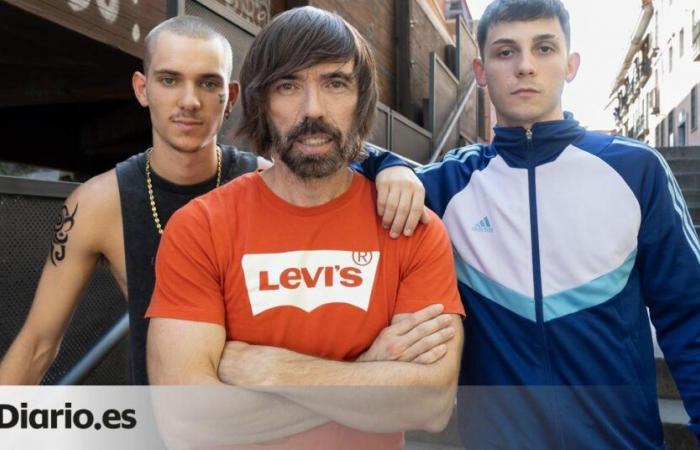
The usual thing is that film directors learn to do it in an official school, with ESCC and ECAM as training tips. However, when they ask David Valero where he learned to make cinema he answers that he was with his childhood friends. They recorded videos and imitated the films they liked. The cinema learned it “in the street, in the town.” As soon as he had a video camera he began to record what was happening around him, to tell stories. He says he was “living and playing” how he discovered a vocation.
That is why it is defined as “self -taught”, and the expression surprises, because rarely people who have not left the official channels come to release a film with the support of Amazon and a producer like José Antonio Félez, responsible for opening the career of filmmakers such as Alberto Rodríguez. Valero was born in Alicante, and although he has a few films and documentaries behind him, everyone had become against the margins of the industry.
Until Félez and Amazon saw the project Enemies –that opens this Friday – and entered this story that the bullying raises outside the classrooms and transferred it to the streets of the neighborhoods. He does it from a point of view that changes the screws, what if the stalker after an accident needed someone to take care of him constantly? Valero is committed to empathy, for understanding what is behind the neighborhood thugs and does so at the rate of trap. It is music that will link stalker (Hugo Welzel) and harassed (Christian Czech), and this has a very important visual and narrative presence in history.
David Valero confesses that he has been trying to raise this project “many years” and remarks again that he learned to make movies on his own. “I paid my shorts, with my family and my friends. Enemies They bet on him and we went for all. Amazon decided that he liked the script a lot and the entire wheel was already launched, but it has been many years. We start writing the script in 2019, ”he recalls.
That is why it defines what has happened as “a dream.” Although he has been at important festivals, all his projects have been “very small.” “I was not as wrapped as I am now. This has overwhelmed me in good sense. It is an incredible experience, but I have realized that I thought that the goal was to make a large film with a large producer or platform and it seems that the cloud has dissipated. I have realized that there is still a lot proportionally with the size of the film that premieres.
-The origin of Enemies He is in his own adolescence and in his environment. “There was a kid, a stalker from the neighborhood who sowed the panic where he passed and there were people very close to me, friends and family who suffered that violence and wanted to take it out in some way, and has been writing and directing how I have done it,” he recalls. That experience was already in his short Scratch, In 2016, but here he develops it beyond and tries to dive what is behind who inflicts that pain.
Valero himself explains that he investigated with the passage of time to that stalker in his neighborhood to understand where that violence came from, and saw that everything came from the family, “from an environment of great hatred and a lot of violence, and he was a reflection and overturned it over the people of the street.” “For me it was important to show where that extreme violence can come from,” he explains. Not to stay alone in their personal experience, they were also documented. They talked to people from the neighborhood, with friends and went to institutes to talk to the directors, who told them “how are the dynamics of harassment in the institutes and how they try to educate about the consequences and create awareness so that there is a change in the students,” he emphasizes.
Neighborhood cinema
As recently happened with To our friendsthen Adrian Orr, Enemies It is right when portraying the neighborhood and its people without falling into condescension or miserabilism. A look without prejudices of those who have lived in its streets. Valero was worried about that portrait, and that is why he wanted it to be “as realistic as possible”, to flee “a type of cinema in which there is no sincerity when counting the neighborhood and the director or hand of the production department is seen.”
There is also his past as a documentary filmmaker. In fact, he initially wanted the entire film to have non -professional actors, but finally for the protagonists they chose experiences with experience, while for the rest of people they looked for people “from the neighborhoods, who live there and have that freshness and that reality that they would not have had figures from other places”.
The film is committed to the encounter and listening, and as a bridge for this, urban music with the trap per flag. For its director, the Trap is “the narrative conduct thread to tell that meeting point among young people, but also serves as an escape from their worlds and a way of expressing what they carry inside.” “A therapeutic way of being able to heal all the hatred and anger they carry,” he adds.
There is in that idea, in which music can unite two enemies, something that the filmmaker believes. For him, “cinema can change people, or at least make them reflect on things they had never thought.” Therefore, he does not believe in a simply evasive cinema, but in one that makes people “connect with life and emotions, to rethink things.”





